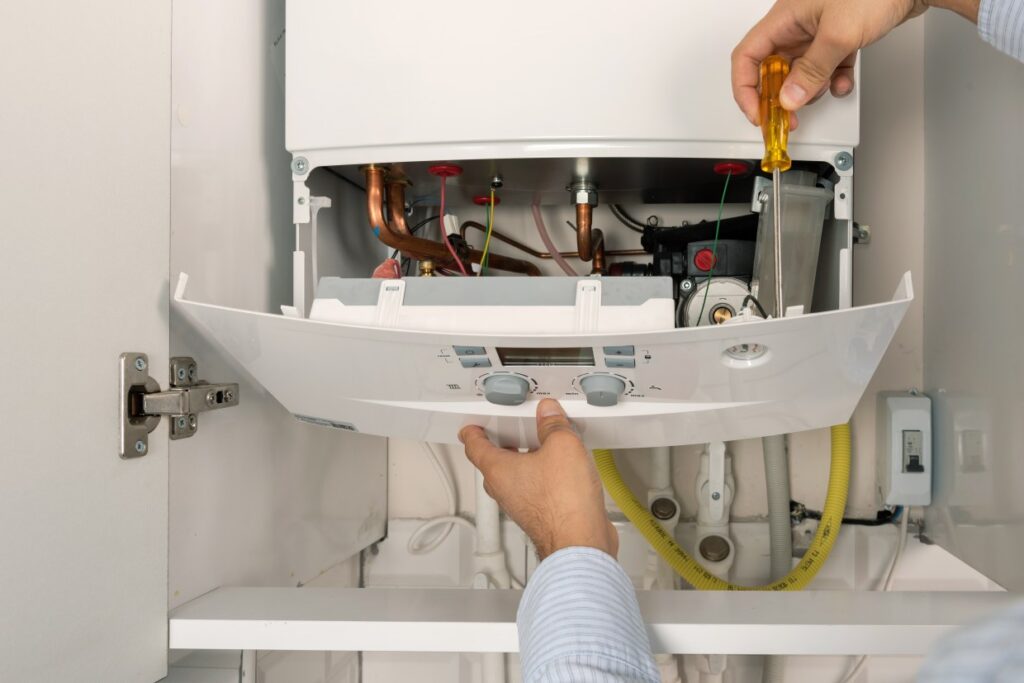
£7,500 Grant for Home Upgrades – How to Claim?
Discover how thousands of households can access additional funds for significant home improvements.

“Prime Minister Rishi Sunak made a big announcement about helping people make their homes more eco-friendly. He said that if you want to change your old gas boiler to a heat pump, you can get up to £7,500 to help pay for it. And guess what? You don’t have to pay the money back!
“Prime Minister Rishi Sunak made a big announcement about helping people make their homes more eco-friendly. He said that if you want to change your old gas boiler to a heat pump, you can get up to £7,500 to help pay for it. And guess what? You don’t have to pay the money back!
They were going to stop using gas boilers in 2035, but now they’re going to wait a bit longer before doing that. The good news is, you don’t have to switch to a heat pump if you don’t want to. You only have to do it when your old boiler needs replacing anyway.
The Prime Minister has announced 5 year delay in the ban on new diesel cars until 2035.
The Boiler Upgrade Scheme, a £450 million fund, offers grants to homeowners in England and Wales to buy heat pumps. Initially launched in 2022, the grant was worth either £5,000 or £6,000, depending on the heat pump type. With the increase, households can now receive an extra £1,500 to £2,500 to cover costs.
Traditionally, most homes rely on gas boilers for heating. However, heat pumps offer a greener and more cost-effective heating option, though they have been costly to purchase and install, typically ranging from £5,000 to £8,000.
The scheme is expected to support around 90,000 installations and will run until March 2025. Heat pumps work by extracting heat from the outside air, even in cold weather, and using it to warm a refrigerant, turning it into a gas.
This gas is then compressed and sent to a central heating system to heat radiators. Heat pumps operate at a lower temperature than gas and oil boilers, potentially reducing energy bills, which have been climbing to record highs.

How do you get money for a heat pump?
To get a grant for a heat pump, follow these steps:
Find an MSC-certified installer: Look for an installer certified by MSC, which stands for the certification scheme for energy-efficient product installers. You can find nearby certified installers on the MSC website. It’s a good idea to get quotes from a few different installers.
Agree on a price: Once you find an installer and agree on a price for the heat pump, the installer will apply for the grant on your behalf.
Confirmation from Ofgem: Ofgem, the energy regulator, will contact you to confirm that the work is being done on your behalf.
Pay the difference: If the heat pump costs more than the grant amount, you’ll need to cover the extra cost.
The cost of a heat pump can be between £6,000 to £8,000, according to the Energy Saving Trust. With the recent increase in the grant, you might have to pay less or even nothing if it covers the full cost.
This grant program is open to households in England and Wales until 2025. Your home should have enough power capacity for a 45kWth installation, which should be suitable for most homes.
Also, your home should have a valid energy performance certificate with no pending recommendations for loft or cavity wall insulation, unless you are exempt.
There are two types of air-source heat pumps: air-to-water systems and air-to-air systems. Unlike gas boilers, heat pumps run on electricity and use less energy, resulting in lower emissions and hopefully lower energy bills.
According to the ECIU, you can get three units of heat out for every one unit of heat you put in with a heat pump.
In simple terms, a heat pump is much more efficient than a gas boiler. When you put one unit of heat into a heat pump, you get over three units of heat out. But with a regular gas boiler, you get less than one unit of heat out for every unit you put in. So, a heat pump is more than three times less energy-hungry compared to a boiler. It’s a win for saving energy and reducing costs!
Never miss any important news. Subscribe to our newsletter.
Related News


British Investor Who Predicted US Slump Warns of Next Crash

I’m a Death Doula: 4 Reasons I Believe Death Isn’t the End


Tech to Reverse Climate Change & Revive Extinct Species

AI Unlocks the Brain’s Intelligence Pathways

XPENG Unveils Iron Robot with 60 Human-like Joints

Can AI Outsmart Humanity?

11 ChatGPT Prompts to Boost Your Personal Brand

Keir Starmer Hints at Possible Tax Hikes on Asset Income

Navigating the Future of AI: Insights from Eric Schmidt
